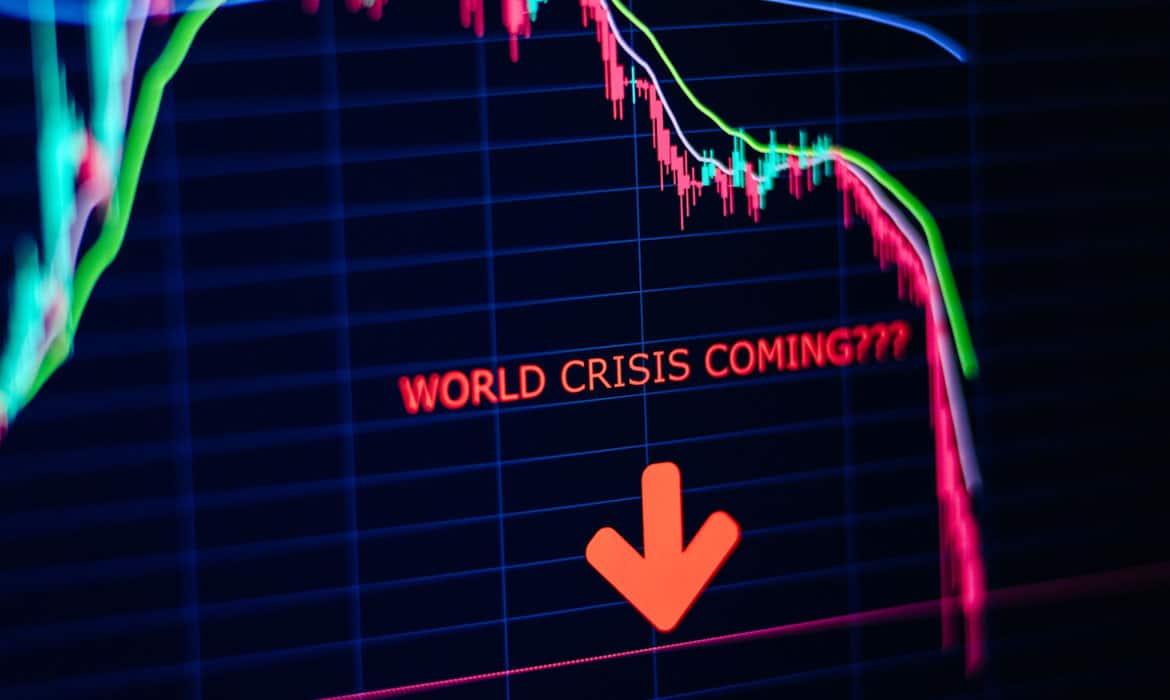In times of economic downturns and recessions, businesses tend to tighten their belts and cut costs to survive. It’s understandable that during such times, the focus is on keeping the business afloat and maintaining profitability. However, cutting marketing budgets might not be the best idea. While it might seem counterintuitive to invest in marketing during a recession, digital marketing might be the answer to survive such challenging times.
Digital technologies have revolutionized the way businesses operate, communicate with their customers, and market their products and services. Digital marketing refers to the use of digital channels and technologies to promote products and services to potential customers. Digital marketing strategies are designed to reach customers where they are spending most of their time – on the Internet. This includes social media, search engines, email, and mobile apps. Digital marketing campaigns and techniques are more cost-effective than traditional marketing methods and can reach a wider audience.
Economists predict an upcoming recession due to inflation and problems in the supply chain industry. Zenith predicts global ad spending will grow by 4.5% in 2023. The US Presidential elections and Olympics help forecast a 7.2% growth in ad spending for 2024.
Ad spending in the U.S. is expected to grow $66 billion between 2022 and 2025, representing 44% of global ad spending growth. China is next in line with an estimated $20 billion growth during the same period. This deceleration in ad spending is mainly because of inflation and a disturbed supply chain sector.
During a recession, businesses need to be smart with their marketing budgets. Digital marketing provides a cost-effective way to reach a wider audience while still delivering a targeted message. Digital advertising, for example, allows businesses to create ads that target specific demographics, interests, and behaviors. This ensures that businesses are spending money on ads that will be seen by potential customers who are more likely to be interested in their products or services. With digital marketing tactics, businesses can also track the performance of their campaigns in real-time, making it easy to adjust the campaign and optimize it for better results.
How to Survive a Recession:
E-commerce Sales Surged During and After the Pandemic
The COVID pandemic had the worst impact on the American economy, even worse than the Great Depression. With businesses shutting down for several months, this global crisis brought one of the most unexpected and biggest challenges for businesses of all types and sizes. On the bright side, this recession led to a growing demand for digital marketing. The industry was already flourishing before the pandemic, but it has reached a new level today. People have started realizing the potential of digital marketing services such as Search Engine Optimization (SEO), Search Engine Marketing (SEM), email marketing campaigns, social media marketing, and other marketing components.
The marketing industry saw a similar recession in 2008-2009. Businesses cut their traditional marketing budgets significantly. So, when another recession hit the industry, people tracked the previous recession to better understand how it affected the industry and what businesses did to thrive in an economic crisis.
Digital marketing has transformed in the last decade. Earlier, people cut their ad spending budget because of the dropped sales and low revenues. Today, the focus has shifted completely from traditional marketing toward digital marketing. Here’s how digital marketing can help businesses survive a recession.
Digital marketing strategy During Recession
What Sells Well During a Recession?
When things seem challenging, people change their marketing strategy and focus on short-term goals. What business owners need to understand is that their marketing strategy will fail miserably once the economy recovers.
Do not direct all your marketing campaigns toward these short-term strategies, instead, you must focus on developing ads that help you achieve customer retention while bringing new customers to your business.
Having said that, some businesses do not need to change their marketing and ad campaigns. Their businesses flourish because of the increasing demand for their products and services. The economic downturn skyrockets the demand for certain items.
Starting a new business during an economic crisis can be a good decision. Some products sell quickly and in bulk amounts during these times. Simply put, the essentials that we need in our everyday life do not suffer in bad times. No matter the market condition, these products will always have the same demand. However, cheaper products perform better in a recession. That’s because people look for cheaper alternatives due to their low income. Here is a list of a few products that perform well during a recession:
- Camping gear
- Automotive tools and accessories
- Tea, coffee, and other beverages
- Cosmetics
- Medical supplies
- Candy
- Pet care products
- Video games and streaming apps
- Clothing
- Food and drinks
- Baby stuff
- Sports items
- Fitness accessories
- Home repair and remodeling items

These were to name a few. There are plenty of products that receive high demand during a recession. Whether the economy is in depression or performing well, demand for some products remains unaffected.
How Do You Market During a Recession?
A common question people asked during a recession is “Is digital marketing recession-proof”? Let’s face the reality — no marketing strategy is recession-proof. Your marketing campaigns and overall sales are largely affected by how your competitors respond to the recession. They will either cut back on their ad spending and focus on other areas of business or they will improve their marketing strategies. The efforts and money you put into marketing campaigns are worth the results. Digital marketing allows people to experiment with different marketing campaigns, analyze the performance of each strategy, and select a campaign that brings maximum traffic to their business.
According to The Global Ads sending plummeted to 9% during the Great Recession. It may sound like a good idea to cut your marketing budget and use this amount on other important areas. Cutting your ad spending might help you save in the short term, but you will end up spending more in the long run. If you are not sure about the best marketing strategy during the recession, here are a few tips that may help.
Don’t Cut Your Ad Spending
Many business owners, especially small businesses, cut their marketing budget dramatically during an economic crisis. This reason is enough to show why you should never cut your ad spending. With your competitors going out of the picture, you will have a better chance of reaching your target audience. If you continue to invest in your marketing campaigns, your revenues will grow significantly and the sales will surge in no time. Besides, marketing campaigns are cheaper and easier to create during recessions. Let’s see how it works.
When your competitors cut their marketing budget, you will notice a sudden boost in your brand visibility. More people will find your brand when searching for similar products. This will not only increase your conversions but improve customer engagement. Ironically, you wouldn’t find a better opportunity than a recession to get your business at the forefront.
Research, Research, and Research
It is a no-brainer, but still, many businesses are unable to bring their brand to the top because they fail to perform market research. Market research helps you understand your audiences’ needs, what your customers prefer, their pain points, and what products they are looking for. Market research should be current and accurate. This means how the market looked a few years back won’t work. You should understand the current trends.
During a recession period, a customer’s income changes and so do their purchasing decisions. They will look for cheaper and long-lasting alternatives. Conduct extensive market research to ensure that your goals are aligned with your customer’s needs. The research will give you deeper insights into your target audience’s pain points, budget, and requirements. Remember, the goal is not just to thrive in a recession, but to grow at the same pace when the economy recovers.
Customer Retention is Crucial
Retaining your customers is easier than getting new customers to do business with you. That’s why more businesses focus on improving their customer retention strategy. This is more important during a recession. As mentioned before, customers’ purchasing decisions change during an economic crisis. Additionally, as a significant portion of your business income comes from existing customers, it makes sense to increase your spending on customer retention.
Another reason why you should focus more on customer retention is that new customers are highly unlikely to give new products and services a shot during the recession. So, it’s a perfect opportunity to build a good relationship with your existing audience and take care of their satisfaction.
This way you can save on your ad spending. The biggest advantage of customer retention is that your existing customers will promote your business for free through word-of-mouth marketing. If they like your product, they will recommend you to their friends, family, and colleagues, thus increasing your brand exposure. Your sales and revenue during and after the recession depend largely on retained customers. So, focus on that.
Check Previous and Current Metrics
Performance metrics give you insights into your past and previous performances. Just creating marketing strategies and launching your ad campaigns won’t show you whether your business is on the right track. You need to analyze performance metrics to get a better understanding of your business’ performance.
This is even more important during an economic crisis, as even a small mistake in your ad campaign can result in significant losses. Check your past metrics and compare them with your current performance. This will also show how your business is doing in these difficult times. You can pinpoint the areas where you can improve. Comparing your past and present business metrics is a great way to invest your time in areas that have shown to work in the past.

Be Consistent in Digital Marketing Efforts
The recession is not the time for thinking about rebranding. Initially, it may look like rebranding will help bring more people to your business, but it doesn’t work like that. Your focus should be on retaining your current customers. For that, it’s important to be consistent with your offerings. Consistency is important in all aspects of your business, including marketing campaigns, customer interaction, after-sale services, and customer support. For instance, you shouldn’t go from posting every week to once in 2-3 weeks or from sending push notifications every day to once in a while.
Improve Your SEO
Do you know 64% of customers used Google My Business to search for mobile numbers and contact details of businesses? 50% of customers didn’t purchase from a store that received less than a 4-star rating. SEO is a long-term investment. While it may not produce results overnight, this investment can help boost your brand visibility in the long run. Just because the economy is in a bad state doesn’t mean you should stop spending on SEO. You should focus more on your SEO and SEM to increase your brand visibility and attract the right audience.
Understand Customer Trends
Businesses revise their marketing strategy according to the latest consumer trends. A successful marketing campaign is well-aligned with customers’ needs and goals. Even during hard times, your focus should be on satisfying your audience and understanding your customers’ spending habits. Know what they are interested in, what’s their budget, and what they avoid buying. Fortunately, you can obtain this data easily. AI-enabled tools have enabled businesses to track their customers’ spending habits, how often they buy things, and which items they purchase the most. Use this data to customize your marketing plans for your target audience. That’s the easiest way to bring more traffic to your online and physical store.
Don’t Change Your Content Marketing Strategy
One popular trend we see during a recession is a sudden change in content marketing strategy. People start focusing more on their content quality. While there’s nothing wrong with following the current trends and optimizing your content accordingly, you shouldn’t ignore the evergreen content. When working on long-form content and SEO, your primary focus should be on timeless solutions. Stick to the strategies that have worked well for your business so far. That being said, do not avoid recession-focused content either. But, at least a part of your content marketing strategy must be based on a long-term approach. The recession must not affect your content marketing. Conduct thorough keyword research and content audits regularly.
What Industry Does Best in a Recession?
Surprisingly, some people started new businesses during the recession and managed to thrive in these times. That’s because the down economy doesn’t affect the demand for certain essentials. The healthcare industry and grocery stuff are the best examples. These are called recession-resistant businesses. But, whichever industry you choose, remember that there’s no guarantee it will flourish. To take a business to new heights, you need great leadership and a powerful marketing campaign.
When faced with an economic crisis, customers first cut back on their spending on non-essential items, such as fashion accessories and restaurants. Since people don’t order in and eat outside, they buy more grocery items to cook at home. As a result, grocery sales skyrocket. Likewise, the pandemic skyrocketed the demand for mental healthcare. A few other industries that tend to do best even in a recession are discount retailers, the pet industry (pet products and grooming services), tax accountants and financial advisors, tech support, cybersecurity, electrical repair, plumbing, and other repair work, freight operations, children’s stuff, and candies. Deaths and funerals are other industries that remain unaffected by the recession.
Bottom line
The recession is a tough time, but it won’t last forever. The above digital marketing efforts and strategies will help you thrive in the recession and come out stronger. Study the current market trends and evaluate your customers’ buying behavior before significantly changing your marketing strategies. Implement the campaigns that will benefit your business now and in the long run. Don’t cut your marketing budget. Instead, use this opportunity to your advantage and bring more customers to your business. With an effective digital marketing strategy in place, any business can survive the recession.













